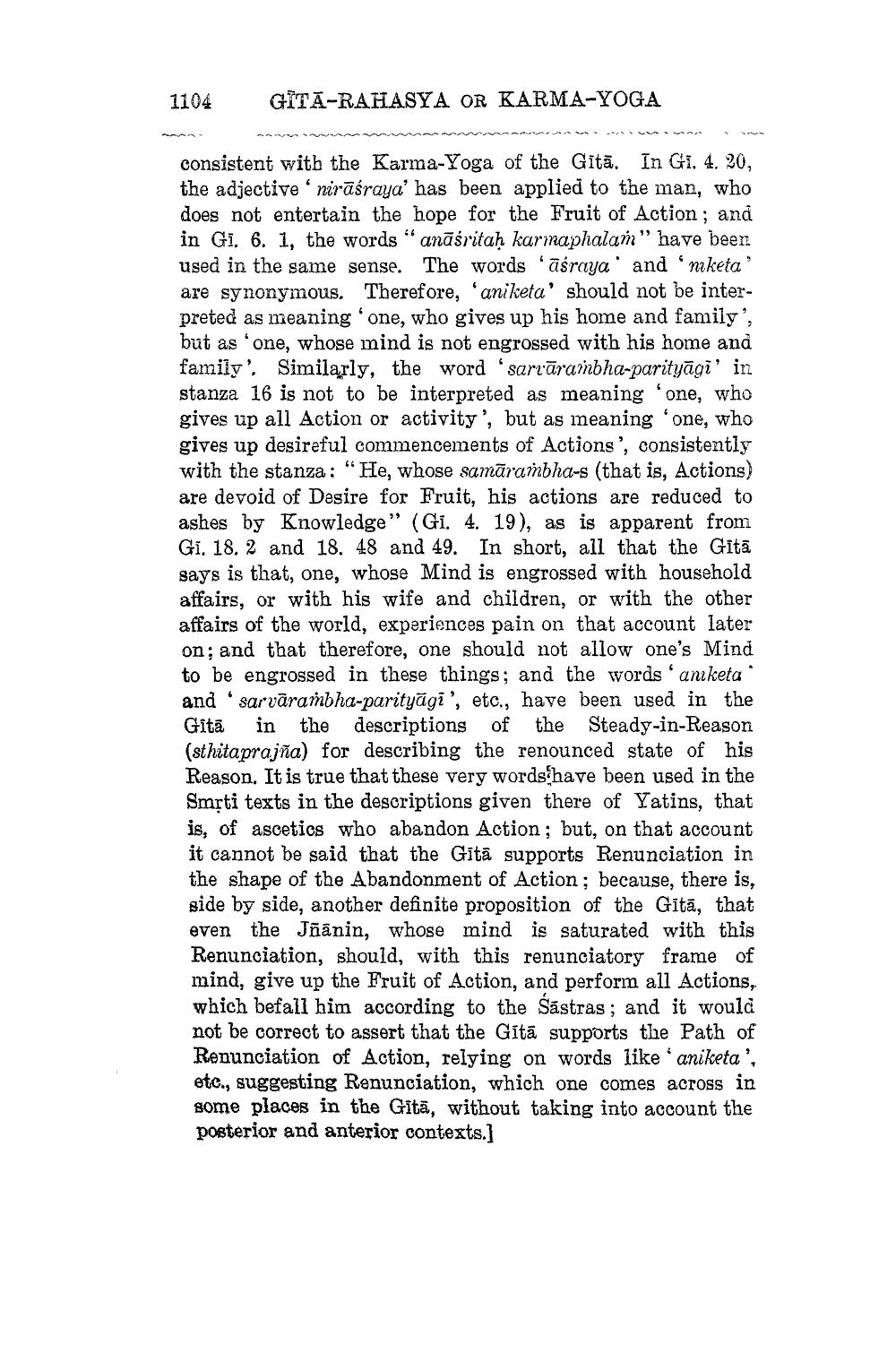________________
1104
GITA-RAHASYA OR KARMA-YOGA
consistent with the Karma-Yoga of the Gitā. In Gi. 4. 20, the adjective' nirāśraya' has been applied to the man, who does not entertain the hope for the Fruit of Action; and in Gi. 6. 1, the words "anāśritaḥ karinaphalam" have been used in the same sense. The words 'asraya' and 'niketa' are synonymous. Therefore, 'ani keta' should not be interpreted as meaning 'one, who gives up his home and family, but as 'one, whose mind is not engrossed with his home and family'. Similarly, the word 'sartārambha-parityāgi' in stanza 16 is not to be interpreted as meaning 'one, who gives up all Action or activity', but as ineaning 'one, who gives up desireful commencements of Actions', consistently with the stanza: "He, whose samārambha-s (that is, Actions) are devoid of Desire for Fruit, his actions are reduced to ashes by Knowledge" (Gi. 4. 19), as is apparent from Gi. 18. 2 and 18. 48 and 49. In short, all that the Gītā says is that, one, whose Mind is engrossed with household affairs, or with his wife and children, or with the other affairs of the world, experiences pain on that account later on; and that therefore, one should not allow one's Mind to be engrossed in these things; and the words ' anketa and 'sarvārambha-parityāgi', etc., have been used in the Gita in the descriptions of the Steady-in-Reason (sthitaprajña) for describing the renounced state of his Reason. It is true that these very words have been used in the Smrti texts in the descriptions given there of Yatins, that is, of ascetics who abandon Action; but, on that account it cannot be said that the Gītā supports Renunciation in the shape of the Abandonment of Action; because, there is, side by side, another definite proposition of the Gītā, that even the Jñanin, whose mind is saturated with this Renunciation, should, with this renunciatory frame of mind, give up the Fruit of Action, and perform all Actions, which befall him according to the Sástras; and it would not be correct to assert that the Gītā supports the Path of Renunciation of Action, relying on words like 'aniketa', etc., suggesting Renunciation, which one comes across in some places in the Gītā, without taking into account the posterior and anterior contexts.]




